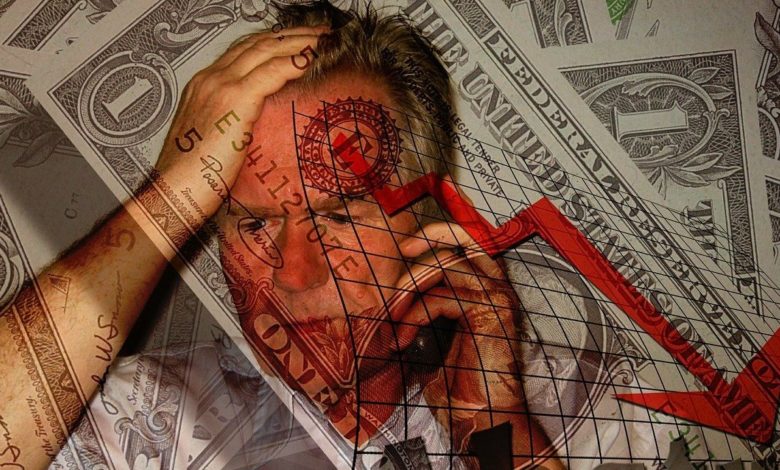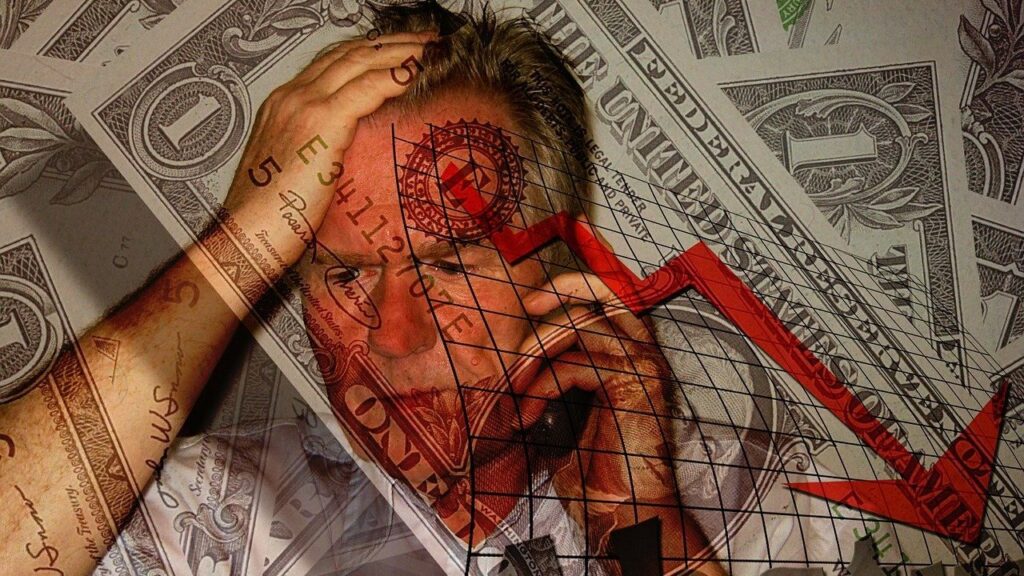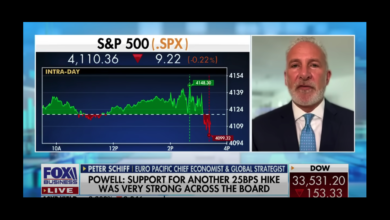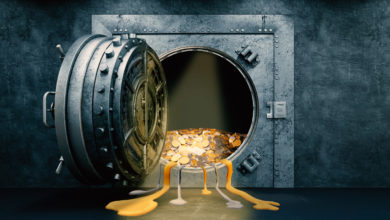Peter Schiff: This Is the Most Obvious Financial Crisis That Nobody Sees Coming

The mainstream continues to insist that the economy is fine. Inflation is beat. A soft landing is in play. But in his podcast, Peter Schiff said we’re in the early stages of a financial crisis. It should be obvious, but very few people see it coming.
Peter emphasized that we are already in the midst of a financial crisis.
Now, this is, of course, the early stages of that financial crisis. It is unfolding before your eyes if you’re awake or smart enough to recognize what you see. But it is going to get a lot worse.”
Peter said that at some point, people are going to recognize that we’re in a financial crisis, but they’re not going to realize why.
They’re all going to be just as blindsided by this financial crisis as they were by the much smaller financial crisis in 2008 that also took them by complete surprise.”
During the 2008 meltdown, the mainstream described it as a “100-year flood” — a “black swan” that nobody could have foreseen.
Which of course was a bunch of BS, because a number of people, myself included, not only saw it in advance, but spent years warning about it.”
Peter said the evolution of this crisis is just as clear.
This is the most obvious financial crisis that nobody sees coming. I mean, this isn’t even a black swan. This isn’t even a white swan. This is like a pigeon. They’re everywhere. This is a very common bird that is not coming out of left field. It’s right there. But Wall Street has a big vested interest in ignoring this. And so do a lot of people on Main Street, so does academia, the financial media, the government. Nobody wants to acknowledge this until of course it already happens. Then they have to figure out who the scapegoat is.”
One thing is pretty certain. Nobody will blame the party most responsible – the government.
They never look back and reflect on the government’s role in creating the crisis. No, no, no! They’re too busy pointing fingers at somebody in the private sector and holding out government as the salvation. ‘We just need more government! If we only had more regulations then this wouldn’t have happened.’ No. It happened because we had too many regulations. What we need is free market regulations.”
Government regulations sabotage the free market regulations that actually do work.
We can see the financial system unwinding in the bond market. Long-term bond yields continued to rise last week. Peter called the bond selloff “relentless.” On Friday, the yield on a 30-year Treasury rose above 5.1%. The yield on the 10-year also briefly eclipsed 5%.
The yield curve is basically flat around 5%, but Peter said it isn’t going to stay flat.
It’s going to steepen. I expect long-term interest rates to continue the March upward, and we should put more distance between a 90-day, 6-month bill and a 10 to 30-year Treasury bond, especially the 30-year bond. That one is going to take the biggest hit.”
Peter said as the curve normalizes, the short end could rise toward 6% with the long end pushing into the 7 or 8 percent range – minimum.
The question is will the Federal Reserve allow it?
Will the financial markets, will the banking sector, will the economy, will the government be able to withstand that increase? So far, it seems like, OK, we’re surviving 5%. Although, I don’t really think we are. I think the numbers belly the problems that underlie the economy.”
For instance, the Index of Leading Economic Indicators fell for the 16th straight month in September, dropping another 0.7%. The Conference Board also revised the August number lower.
That’s pretty rare. You have to go back to 2007-2008, which was the Great Recession — the worst recession since the Great Depression of the 1930s. You’ve got to go back there to find a string of negative leading economic indicators that’s longer than the 16 months we’ve got now.”
This indicates that the economy is a lot weaker than the “experts” keep telling us.
If the economy is so strong, how can these ‘leading’ economic indicators be so weak?
Meanwhile, we have record credit card debt along with record credit card interest rates. The “unsinkable” American consumer is drowning in debt. Financial sector stocks are getting beaten up. American Express was down 5.4%. Peter pointed out that these banks and financial companies are just reporting the early stages of problems.
But anybody who was loaning out money during the bubble is going to have a problem getting the money back as the bubble deflates, so, this is just the tip of a big iceberg for American Express, Visa, Mastercard, Discover, all these credit card companies.”
And if consumers can’t borrow — they can’t buy.
There are also continuing signs of stress in the banking sector. Banks continue to tap into the bailout program set up after the collapse of Silicon Valley Bank and Signature Bank. There is also growing concern about pressure in the banking system created by the commercial real estate market.
Things are still simmering under the surface, but it’s only a matter of time before the situation erupts.
In this podcast, Peter also talked about Jerome Powell’s speech at the Economic Club. He said Powell isn’t qualified to be a member.
Call 1-888-GOLD-160 and speak with a Precious Metals Specialist today!
Buka akaun dagangan patuh syariah anda di Weltrade.
Source link







